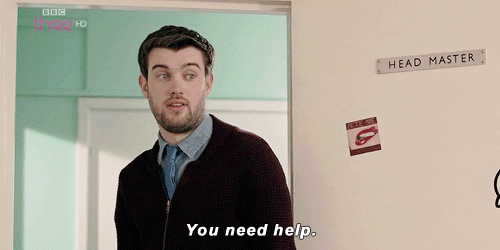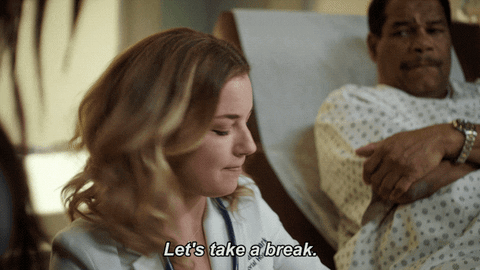Working and studying in academia involves a lot of writing. And at some point in your writing career you’re bound to run into a stint of writer's block. It can strike anybody and has even afflicted famous writers and artists such as Mark Twain, Thom Yorke, and Stephen King, all of whom were unable to produce for months at a time. It can be frustrating and hard to overcome, but it’s not an impossible challenge.
I’ve drawn on my own personal experience with writer's block and talked with 14 graduate-level colleagues and friends to come up with these five tips to help you deal with this frustrating phenomenon.
Step back

When faced with having to write and not knowing where to start, take a step back. Does that 7,000-word paper seem overwhelming? Start by breaking down what needs to go into the paper to get an idea of what it should look like. Knowing how much space you have available for the sections of your paper can make it much easier to approach.
Start by allocating how much space you want to give your introduction/conclusion. For myself, I give between 5–10%. Doing the math, the 7,000-word paper has just become 5,800 words for the body. Now, what’s your argument or the point you’re trying to make? Plot those down as sections to your paper that contribute to your argument. Let’s say your argument has five points, and thus five sections. With equal word distribution, each section should be approximately 1,100 words. Thinking about it as a series of small sections is much more manageable and far less stressful.
Get help from The Writing Centre

Often your anxieties can stem from figuring out where to start or deciding what exactly to write about. Perhaps you already have your topic, but you just don’t have your ideas or discussion points properly sorted. Speaking with someone can be a good start to get over that ‘hump’ of sorting these ideas and how to actually start writing.
The advisors at Dal’s Writing Centre in Halifax and Truro can be a great resource for a variety of aspects of writing. They can chat with you about your ideas, help clarify discussion points, and provide tips on ways to improve your writing.
Write anything else

The idea of writing when you’re already suffering from writer's block may seem a little backwards. However, chances are good that your writer's block is associated with a particular piece or project, and stem from your anxieties around it. One way of traversing these anxieties and getting back on track includes writing anything else.
What about that blog post you’ve been meaning to finish? Or that short story that’s been jumbling around in your head? Or even just a diary entry? Instead of worrying about needing to write, just take 20 minutes to write whatever you want. Don’t stress over editing or making it ‘sound good,’ just as long as you’ve done something. Practicing this regularly—short spurts even just once a day—can help you maintain your flow in writing while helping you take the stress out of it.
Perhaps you do need a break

As an undergraduate, I had a habit of being neurotic with my writing, staying up to ridiculous hours of the night trying to write a paper and being unproductive because I was overtired and overstimulated from all the energy drinks I consumed. I would get myself stuck on the idea that I had to finish my paper ASAP, and would get frustrated that it wasn’t done. But I wasn’t in a headspace to do it.
As long as you’re ensuring that you’re working on your piece in advance (rather than the night before it’s due), you’ll be OK. There’s nothing wrong with getting small, steady amounts of your paper done per day. And in the moment that you’re having trouble getting work done, know that it’s OK to step away. Meditate. Take a walk. Breathe. Do whatever you need to do to take your mind off your written work so that you can come back at a later time, refreshed.
You’re not perfect and that’s OK

The last piece of advice I can give for overcoming writer's block is to accept the fact that you’re not perfect, and neither is your written work. But that’s OK. There’s no need to stress or be anxious over the quality of your written piece. Perfection is unattainable, and quality comes with persistence.
And if it’s any consolation, your academic supervisor, who’s been writing their whole life, probably struggles too. Writer’s block can strike anyone at any time so it’s best to be prepared.


